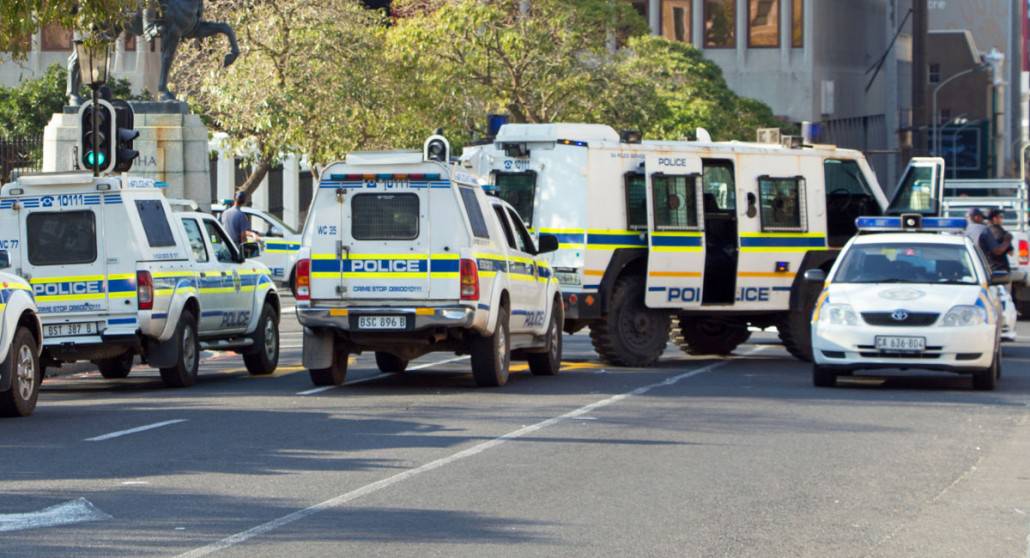South Africa is one of eight emerging nations whose police forces are profiled in a new book titled Police Corruption and Police Reforms in Developing Societies. The volume, edited by Kempe Ronald Hope, Sr., looks at efforts to combat police corruption in Argentina, Cameroon, Ghana, India, Kenya, Solomon Islands, Trinidad and Tobago, and South Africa, as well as Hong Kong.
Hope is a senior governance advisor at the UN Development Programme in Nairobi, Kenya. A respected academic, he is a former professor of development studies at the University of Botswana, and the founding director of the SADC Centre of Specialisation in Public Administration and Management. Hope has published over 15 books and monographs, and more than 100 journal articles.
Using case studies, the book examines the causes and consequences of corruption in the countries in question, as well as the methods they have developed to tackle the problem. These methods include a mix of organisational reforms, new training programs, the introduction of ethics codes and civilian oversight bodies, reforms to recruitment and promotion, and increases in pay in search of a professional, non-corrupt police service that can maintain order while upholding democratic ideals.
Hope points out that there is no easy, one-size-fits-all solution and the way forward relies on the individual country contexts.
In South Africa’s case, the chapter is titled A schizophrenic system for combating the scourge of police corruption. Its author, Cornelis Roelofse, outlines key policy inconsistencies and contradictions, as well as political and administrative interference, which have contributed to the situation. Roelofse is professor of criminology and criminal justice at the University of Limpopo in Polokwane. He is also a member of the board of the Policing Association of South Africa, and has published on policing, security and crime prevention.
His chapter is subdivided into sections covering the theoretical context, oversight of police, and police leadership, as well as a background and conclusion. “More than two decades after the first universal franchise election in South Africa and a completely transformed police service, there is still mounting evidence of grand-scale corruption in the police,” Roelofse says at the start of the chapter. “At the onset, it is essential to emphasize that police corruption is a secretive phenomenon. Such practices not only are perpetrated in clandestine ways but also often go unreported due to fear and intimidation of those affected and reciprocal benefits derived through bribing.”
South Africa’s police force is widely perceived to be corrupt – in Transparency International’s 2013 Global Corruption Barometer, 83% of respondents in South Africa felt that the police were corrupt.
“Corruption in the police is not confined to developing societies,” Roelofse notes, “but what is common is the fact that corruption is endemic in a sizeable majority of police organisations.”
Police corruption unpacked
In this particular book, police corruption is defined as: any action or omission, a promise of any action or omission. or any attempt of action or omission committed by a police officer or a group of police officers, characterised by the police officer’s misuse of the official position and motivated in significant part with the achievement of personal/private or organisational gain or advantage.
“This way of defining police corruption … thus allows us to include behaviour that could be otherwise classified as extortion, robbery, burglary, theft, or overzealous policing with the aim of personal advancement,” notes the book. “This broad functional definition acknowledges that police corruption can be identified as deviant, dishonest, improper, unethical, or criminal behaviour by a police officer.”
Interestingly, the book argues that this broader approach can now include related offences such as outrageous police shootings or incidents of brutality that blatantly violate human rights. “These should also come under the rubric of corruption since they reflect a police culture that subverts official standards of accountability.”
The book points out that when police officers engage in corrupt activities without the cover of their police role, they are merely criminals. “Police corruption, as it is generally accepted, necessarily involves an abuse of position, and what is corrupted is the special trust invested in the occupation of police officer and therefore the special trust enjoyed by all police officers.”
Police officers are held to a higher standard of behaviour by society because they are stewards of the public trust and are empowered to lawfully apply force. They take an oath of office, are expected to comply with professional codes of ethics, and are subject to various laws, rules, regulations, and standing orders.

